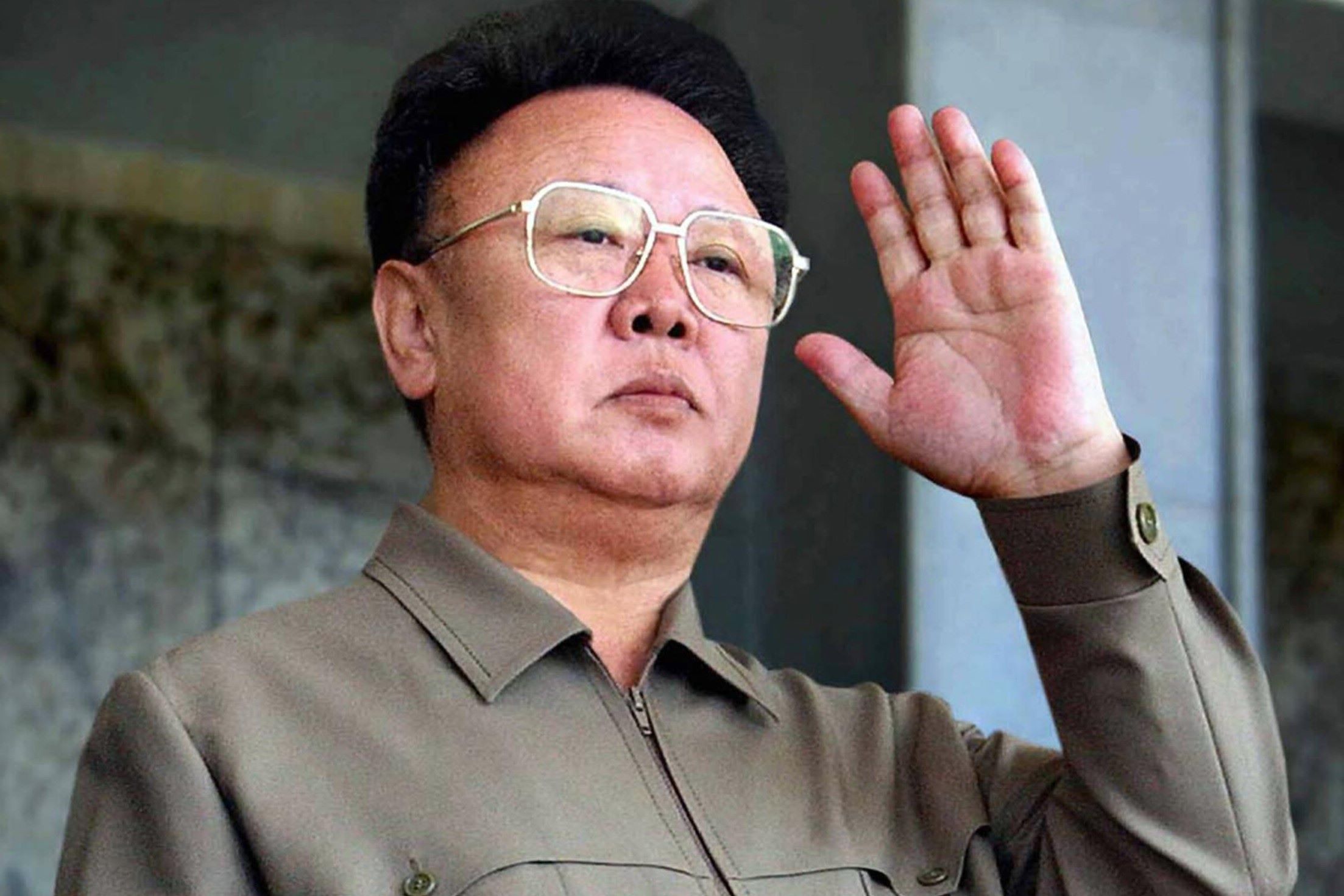
Kim Jong-Il, the enigmatic leader of North Korea, remains a figure shrouded in mystery and intrigue. Born under disputed circumstances, his life was filled with contradictions and eccentricities. From his lavish lifestyle to his authoritarian rule, Kim Jong-Il's reign left an indelible mark on North Korea and the world. His leadership style combined strict control with personal quirks, creating a unique and often controversial legacy. Whether it's his reported golf prowess, his love for luxury, or his role in North Korea's nuclear ambitions, Kim Jong-Il's story is a blend of myth and reality. Let's delve into 50 fascinating facts about this complex leader.
Key Takeaways:
- Kim Jong-il, the enigmatic leader of North Korea, had an extravagant lifestyle, eccentric personality, and nuclear ambitions, leaving a complex and controversial legacy.
- Kim Jong-il's love for luxury, unique hobbies, and psychological traits made him a fascinating yet controversial figure in modern history.
50 Facts About Kim Jong-Il: Unveiling the Enigmatic Leader of North Korea
Kim Jong-il, the mysterious and reclusive leader of North Korea, left a lasting impression on the world. His life was filled with intrigue, luxury, and strict control. Here are 50 fascinating facts about Kim Jong-il that offer a deep look into his life, leadership, and the country he ruled.
Birth and Early Life
Kim Jong-il's early years are surrounded by myths and conflicting reports.
- Kim Jong-il was born on either February 16, 1942, or 1941, with conflicting reports on his exact birthdate and location. Officially, he was born in a secret military camp on Baekdu Mountain, but Soviet records suggest a Siberian village in 1941.
- Kim Jong-il was the son of Kim Il-sung, the founder of North Korea, and Kim Jong-suk. His family played a crucial role in shaping his future and the destiny of North Korea.
Education and Early Career
His education and early career laid the groundwork for his future leadership.
- Kim Jong-il received his education at Kim Il Sung University in Pyongyang during the 1960s. He studied political economy and began to develop his skills in politics and leadership.
- Kim Jong-il held various crucial positions in the government and party structures, including leadership roles within the Korean Workers’ Party and the military.
Family and Personal Life
Kim Jong-il's personal life was as complex as his political career.
- Kim Jong-il had multiple marriages, including with Kim Ok, Ko Yong Hui, and Kim Yong Suk. He fathered several children, including Jong-chul, Kim Yo-jong, and Kim Jong Un.
- Kim Jong-il was known for his extravagant lifestyle. He owned at least 17 opulent mansions and was fond of luxury items such as yachts, Chanel No 5, and lead crystal.
Leadership and Governance
Kim Jong-il's leadership style was marked by strict control and eccentricities.
- Kim Jong-il assumed power in North Korea in 1994 upon his father's death. His leadership was marked by a mix of authoritarian control and personal eccentricities.
- Kim Jong-il engaged in diplomatic relations with various countries, including secret visits to China, meetings with South Korean leaders, and discussions with US officials regarding North Korea’s nuclear programs.
Health and Succession
His health issues and succession plans were subjects of global interest.
- Reports of Kim Jong-il's declining health surfaced in 2008, leading to speculations about his succession plans.
- Kim Jong-il named his youngest son, Kim Jong Un, as his heir. This decision was seen as a strategic move to ensure the continuation of his family's rule over North Korea.
Death and Funeral
Kim Jong-il's death marked the end of an era in North Korean leadership.
- Kim Jong-il passed away on December 17, 2011, reportedly due to a heart attack. His funeral in Pyongyang was a significant state event, attended by high-ranking officials and featuring elaborate rituals and ceremonies.
Extravagant Lifestyle
Kim Jong-il's love for luxury was well-known.
- Kim Jong-il was a renowned golf enthusiast. He reportedly shot a 38-under-par round at North Korea's only golf course, including 11 holes-in-one.
- Kim Jong-il was a near-obsessive film buff. He had a reported collection of over 20,000 video tapes and produced a socialist version of Godzilla.
- Kim Jong-il enjoyed live fish sashimi and had a meticulously curated diet designed by a team of scientists to promote longevity.
Myths and Legends
Many myths surrounded Kim Jong-il, adding to his enigmatic persona.
- Kim Jong-il spread the myth that he could control the weather with his moods. This myth was part of his larger persona as a divine leader.
- Kim Jong-il's birth was prophesied by a swallow and heralded with a double rainbow and a new star in the heavens. This mythological background added to his divine persona.
Military and Nuclear Program
Kim Jong-il's military strength and nuclear ambitions were key aspects of his rule.
- North Korea acquired its nuclear program from the Soviet Union in the 1980s. Estimates of the size of its nuclear weapons stockpile ranged from low single digits to just more than a dozen.
- North Korea has one of the largest armies in the world. According to the US State Department, it has an estimated active duty military force of up to 1.2 million personnel.
Eccentricities and Peculiarities
Kim Jong-il's eccentricities were legendary.
- Kim Jong-il was obsessed with his rice. He made female staff inspect each grain to check it adhered to standards of length, weight, and color.
- Kim Jong-il reportedly forced waitresses at restaurants frequented by foreigners in Pyongyang to have cosmetic surgery in order to appear more "western."
- Kim Jong-il was known to drink £450,000 of cognac each year in a country where the average income was about £580.
Legacy and Impact
Kim Jong-il's legacy is complex and multifaceted.
- Kim Jong-il's rule was marked by both authoritarian control and personal eccentricities. His impact on North Korea's nuclear program and military strength is undeniable.
- Kim Jong-il's lavish lifestyle and human rights abuses remain subjects of international criticism. Despite his enigmatic nature, he remains a significant figure in modern history.
Culinary Innovations
Kim Jong-il's contributions to North Korean cuisine were unique.
- Kim Jong-il introduced "Gogigyeopbbang," a North Korean take on a hamburger. This innovation highlighted his efforts to improve the lives of North Koreans through culinary innovations.
- Kim Jong-il created factories to produce "double bread with meat," which was similar to an American hamburger, to feed his students and teachers.
Psychological Analysis
Psychologists have studied Kim Jong-il's personality extensively.
- A personality evaluation report suggested that the "big six" group of personality disorders—sadistic, paranoid, antisocial, narcissistic, schizoid, and schizotypal—were dominant in Kim Jong-il.
- These traits were shared by other dictators like Adolf Hitler, Joseph Stalin, and Saddam Hussein. This analysis suggested that his behavior was influenced by a combination of psychological factors.
Luxury Imports
Kim Jong-il's love for luxury imports was well-documented.
- Kim Jong-il had a penchant for luxury imports, including Chinese dolphins, French poodles, and African aphrodisiacs. He also developed a palate for donkey meat, lobster, and expensive French wine.
- Kim Jong-il's extravagant lifestyle was a subject of international scrutiny and criticism. His love for luxury items was seen as a stark contrast to the poverty experienced by many North Koreans.
Unique Hobbies and Interests
Kim Jong-il's hobbies were as unique as his leadership style.
- Kim Jong-il installed a series of loopy waterslides at his residences. This extravagant feature reflected his love for luxury and comfort.
- Kim Jong-il was known for his peculiar dietary preferences. He enjoyed live fish sashimi and had a meticulously curated diet designed by a team of scientists to promote longevity.
Diplomatic Relations
Kim Jong-il's diplomatic efforts were often shrouded in secrecy and controversy.
- Kim Jong-il engaged in secret visits to China and meetings with South Korean leaders. These diplomatic efforts were aimed at discussing North Korea’s nuclear programs.
- Kim Jong-il's discussions with US officials regarding North Korea’s nuclear programs were often controversial and shrouded in secrecy.
Propaganda and Mythology
Kim Jong-il's regime was known for its extensive use of propaganda.
- Kim Jong-il's birth was prophesied by a swallow and heralded with a double rainbow and a new star in the heavens. This mythological background added to his divine persona.
- Kim Jong-il's early development was surrounded by myths. He reportedly started walking at three weeks old and began speaking at eight weeks.
Cultural Impact
Kim Jong-il's influence extended beyond politics and into culture.
- Kim Jong-il was a near-obsessive film buff. He had a reported collection of over 20,000 video tapes and produced a socialist version of Godzilla.
- Kim Jong-il's love for films led to the abduction of a South Korean filmmaker and his wife to produce a North Korean version of Godzilla.
Health and Longevity
Kim Jong-il's health was a subject of much speculation.
- Reports of Kim Jong-il's declining health surfaced in 2008, leading to speculations about his succession plans.
- Despite health issues, Kim Jong-il continued to maintain a strong grip on power until his death in 2011.
Succession and Legacy
Kim Jong-il's succession plans were carefully orchestrated.
- Kim Jong-il named his youngest son, Kim Jong Un, as his heir. This decision was seen as a strategic move to ensure the continuation of his family's rule over North Korea.
- The transition of power was marked by a series of high-profile events and military parades. This ensured a smooth succession and the continuation of Kim Jong-il's legacy.
Military Strength
Kim Jong-il's military strength was a key factor in maintaining control over North Korea.
- North Korea has one of the largest armies in the world. According to the US State Department, it has an estimated active duty military force of up to 1.2 million personnel.
- Kim Jong-il's focus on military strength was aimed at maintaining control over the country and deterring external threats.
Nuclear Ambitions
Kim Jong-il's nuclear ambitions were a significant aspect of his rule.
- North Korea acquired its nuclear program from the Soviet Union in the 1980s. Estimates of the size of its nuclear weapons stockpile ranged from low single digits to just more than a dozen.
- Kim Jong-il's nuclear ambitions were aimed at deterring external threats and maintaining control over North Korea.
Personal Eccentricities
Kim Jong-il's personal eccentricities were legendary.
- Kim Jong-il was obsessed with his rice. He made female staff inspect each grain to check it adhered to standards of length, weight, and color.
- Kim Jong-il reportedly forced waitresses at restaurants frequented by foreigners in Pyongyang to have cosmetic surgery in order to appear more "western."
Extravagant Lifestyle
Kim Jong-il's love for luxury was well-known.
- Kim Jong-il was known to drink £450,000 of cognac each year in a country where the average income was about £580.
- Kim Jong-il had a penchant for luxury imports, including Chinese dolphins, French poodles, and African aphrodisiacs. He also developed a palate for donkey meat, lobster, and expensive French wine.
Psychological Analysis
Psychologists have studied Kim Jong-il's personality extensively.
- A personality evaluation report suggested that the "big six" group of personality disorders—sadistic, paranoid, antisocial, narcissistic, schizoid, and schizotypal—were dominant in Kim Jong-il.
Kim Jong-Il's Lasting Impact
Kim Jong-Il's rule over North Korea was anything but ordinary. From his mysterious birth and early life to his extravagant lifestyle and authoritarian control, he left a mark on history that continues to intrigue and baffle. His leadership saw North Korea's nuclear ambitions grow, and his personal quirks, like his obsession with rice and love for luxury, painted a picture of a leader who was both feared and revered. Despite his controversial reign, Kim Jong-Il's legacy lives on through his son, Kim Jong Un, who continues to lead North Korea. The stories and myths surrounding Kim Jong-Il offer a glimpse into the complexities of his character and the country he shaped. His impact on North Korea and the world remains a topic of fascination and debate, ensuring his place in the annals of history.
Frequently Asked Questions
Was this page helpful?
Our commitment to delivering trustworthy and engaging content is at the heart of what we do. Each fact on our site is contributed by real users like you, bringing a wealth of diverse insights and information. To ensure the highest standards of accuracy and reliability, our dedicated editors meticulously review each submission. This process guarantees that the facts we share are not only fascinating but also credible. Trust in our commitment to quality and authenticity as you explore and learn with us.


